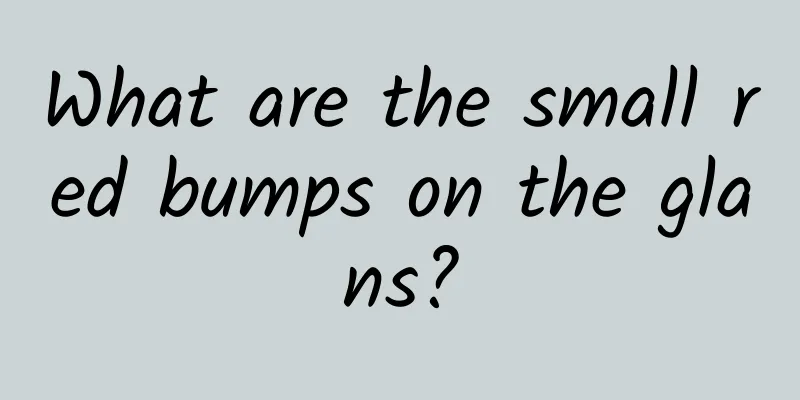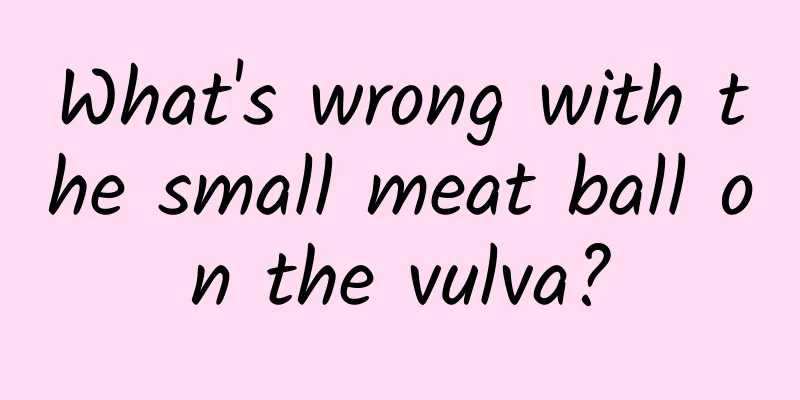Will bowing your head for a long time cause chest pain?

|
For many patients with angina pectoris, many behaviors in life can cause chest pain. If you suffer from angina pectoris, you need to pay attention to many things in your life, because if the disease occurs, it can be very dangerous. So, if you suffer from angina pectoris, will it cause chest pain if you lower your head to do things for a long time? In fact, it is recommended that you do not work for long hours, and it is best to combine work and rest. Patients with angina pectoris have blood clots in their coronary arteries, which can cause poor blood flow, insufficient blood supply to the heart, myocardial hypoxia and insufficient nutrient supply, and can indeed cause symptoms of chest tightness or chest pain. However, the heart is not the only organ that can cause chest pain in the upper abdomen. Diseases of the esophagus, lungs, gallbladder, or stomach can also cause chest pain. In addition, psychological factors such as anxiety can also cause chest pain. Next, let’s take a look at what other specific situations can cause chest pain. 1. Chest pain after eating may be a problem with the digestive tract Chest pain after eating, especially pain in the lower chest, is mostly caused by the digestive system rather than heart disease. There are three possible reasons: 1. Gastroesophageal reflux With gastroesophageal reflux, stomach acid sometimes flows back up from the stomach into the esophagus, causing a burning sensation in the chest that is often mistaken for angina or a heart attack. 2. Esophageal spasm The esophagus is a straight tube between the pharynx and the stomach. When the esophagus spasms, the sudden and powerful contraction of the muscles can cause pain between the pharynx and the stomach, which can easily be mistaken for chest pain. Additionally, spasms can block food from the esophagus from entering the stomach. 3. Gallbladder disease Sudden pain within 30 minutes of eating may be a sign of gallstones. Pain caused by gallstones is usually located below the breastbone and may radiate into the right shoulder and between the shoulder blades. The pain occurs because gallstones block the flow of bile to the liver, so the gallbladder contracts more vigorously than usual in order to pump out bile. 2. Inflammation in the body causes chest pain If we suffer trauma, infection, or autoimmune disease, our immune cells will attack our own tissues, causing inflammation of the tissues in the chest cavity. There are two common types of inflammation that cause chest pain: 1. Costal cartilage inflammation Inflammation of the chest wall between the ribs and sternum can cause pain or stabbing pain that is often mistaken for a heart attack. But it is very different from heart disease. Costal cartilage inflammation is usually caused by sports injuries or excessive exercise, and is often accompanied by joint inflammation. 2. Pericarditis The pericardium is a protective, double-layered sac surrounding the heart. Pericarditis can occur for many reasons, including a viral or other infection, certain medical conditions, a chest injury, radiation therapy for cancer, or an adverse reaction to some medications. The classic symptom of pericarditis is sharp, stabbing pain in the center or left side of the chest that is worse with deep breathing or lying down. 3. Chest pain caused by lung disease The following lung disorders can cause chest pain that can be confused with angina: 1. Pneumonia People with pneumonia may experience shortness of breath and chest pain after taking a deep breath. But unlike angina, pneumonia is accompanied by other symptoms, such as fever, chills, or cough. 2. Pulmonary embolism Pulmonary embolism, caused by a blood clot that enters a blood vessel in the lungs, can also cause chest pain. The pain is often accompanied by a fast or irregular heartbeat, sudden difficulty breathing, dizziness, or fainting. Pulmonary embolism can be life-threatening. If you experience any of the above symptoms, please call emergency services immediately. 4. Psychological factors can also cause chest pain Excessive anxiety and severe shock can cause symptoms similar to angina. Chest pain may occur when encountering sudden events or high stress, and this pain is usually accompanied by chest tightness, shortness of breath, palpitations and dizziness. Unlike angina, chest pain caused by anxiety and shock is short-lived, usually lasting only one to two minutes. If chest pain recurs or persists for several days, it is recommended that you see a doctor for a detailed examination to determine the cause. If the chest pain is severe, lasts for several minutes, and does not subside after rest, you should seek medical attention immediately without delay. |
<<: I feel dizzy and my right chest hurts.
>>: I have chest pain and no sense of taste recently. What's going on?
Recommend
Sciatica symptoms in thigh
Sciatica is a relatively common symptom, mainly d...
How to quickly reduce swelling after double eyelid surgery
After double eyelid surgery, there will be a cert...
Who is not suitable for chicken gizzard?
Chicken gizzard lining is not suitable for patien...
Are arrhythmias dangerous?
Arrhythmia is a relatively common symptom. Many p...
What are the dietary treatments for allergic rhinitis?
Rhinitis is a headache for many people because th...
I fell and my wrist hurts when I move it
Everyone has only two pairs of hands, and any wor...
What Chinese medicine can treat urethritis?
The common feature of Chinese medicine is that it...
Does overeating during pregnancy affect the baby?
Pregnant women's appetite will change greatly...
Don't disbelieve it! A Chinese medicine master would never do this in his life.
Xu Wenqi, a health practitioner in the Qing Dynas...
Will chronic pharyngitis heal on its own?
The occurrence of chronic pharyngitis is related ...
Stomach pain before delivery
It is necessary to observe the changes in the bod...
Why do I feel anxious after drinking strong tea?
If you experience palpitations when drinking stro...
Should I apply heat or cold for joint pain or arthritis?
At first glance, cold compress and hot compress a...
What are the functions of the Chinese herbal medicine Astragalus?
There are many precious Chinese herbal medicines ...
What does it mean to have too much turbidity in the body?
I believe many people have had this feeling, that...









